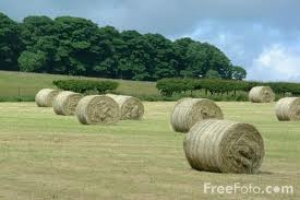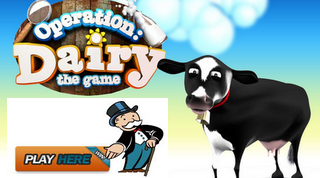Nutritional needs of dairy cattle
Moderate Energy Dry Cow Diets May Improve Postpartum Health

f you are like me you might think to yourself, just one more dessert. Dry cows do a poor job of regulating energy intake as well. Data collected at the University of Illinois over the last ten years demonstrates that cows will consume 40-80% more energy than required during both far-off and close-up periods. Prolonged consumption of energy in excess of that required during the dry period can result in reduced postpartum success due to increased incidence of metabolic and health related disorders. Cows over-fed energy during the dry period can become metabolically lazy. By lazy, I mean that important organs such as the liver tend to slow down metabolic processes associated with oxidizing (burning) of fat for energy and the production of glucose. These are important processes that need to be in place and appropriately active prior to the onset of lactation.
Changes in metabolic processes due to energy intake may be counterintuitive as feeding higher energy dense diets during the dry period causes a dry cow to rely more on the energy in the diet and less on her metabolism to generate energy.
Research groups around the U.S. as well as in other countries have observed improved postpartum production and health in cows fed moderate energy dry cow diets. Formulating diets that are relatively low in energy density (approximately 0.60 Mcal NEL/lb DM) by including approximately 30% wheat straw allows cows to eat free choice without greatly exceeding energy requirements. The concept is to allow cows to meet but not greatly exceed energy requirements. High straw diets should force dry cows to stop eating due to rumen fill before they greatly exceed their requirement for energy intake.
Field evidence suggests rumen fill due to the slow rate of passage of high straw diets may decrease the incidence of displaced abomasum by providing rumen fill even as feed intake decreases around the time of calving. Maintaining rumen volume and muscle tone during the dry period might be a beneficial byproduct of high straw diets.
A cost comparison of a high straw dry cow diet with a higher energy dry cow diet is provided in the table. Feeding a moderate energy diet versus a higher energy diet would result in an estimated savings of $0.40/cow/day. This estimate does not account for added health benefits and the potential for more milk.
Practical Applications
- Begin feeding a high straw, moderate energy diet at dry off and continue until calving.
- Straw needs to be processed to a length of 2 inches or less to prevent sorting.
- Clean, mold free wheat straw is preferred over other types of roughages due to its physical properties, low energy content, and good palatability.
- Dry matter intake: 25 to 30 lb/day.
- Energy density: 0.60 Mcal NEL/lb DM.
- Crude protein content: 12 to 14%. Consider increasing the protein in the diet if growing heifers are mixed with mature dry cows.
- Starch content: 12 to 16% of DM.
- Forage NDF: 40 to 50% of total DM, or 10 to 12 lb daily (0.7 to 0.8% of body weight).
- Total ration DM content: <55%. Additional water will help prevent sorting.
- Anionic salts should be added to prevent milk fever.
- Push up feed regularly to minimize sorting.
Bunks and feed aprons may need to be modified to account for the increased bulkiness of the diet.
Estimated costs of far-off diets varying in energy density. Estimates are based on 27 lb of dry matter intake. Diets were formulated to meet (Moderate energy) or exceed (High Energy) energy requirements for far-off dry cows.
| . | Moderate Energy | High Energy | |||
|---|---|---|---|---|---|
| Ingredient | % of ration DM | Cost/lb DM ($) | Cost($)/cow/day ($) | % of ration DM | Cost($)/cow/day ($) |
| Alfalfa silage | 41.7 | 0.08 | 0.90 | 26.24 | 0.57 |
| Alfalfa hay | - | 0.08 | 0.00 | 13.97 | 0.30 |
| Corn silage | 21.1 | 0.06 | 0.34 | 25.52 | 0.41 |
| Wheat straw | 26.1 | 0.045 | 0.32 | 0.00 | 0.00 |
| Cottonseed | - | 0.25 | 0.00 | 4.39 | 0.30 |
| Ground shelled corn | 7.2 | 0.11 | 0.21 | 17.24 | 0.51 |
| Soybean meal | 3.1 | 0.23 | 0.19 | 0.00 | 0.00 |
| Expelled soy | - | 0.21 | 0.00 | 1.73 | 0.10 |
| Soy hulls | - | 0.06 | 0.00 | 10.24 | 0.17 |
| Mineral mix | 0.8 | 0.50 | 0.41 | 0.67 | 0.09 |
| Total estimated daily cost | . | . | 2.07 | . | 2.44 |
|
Composition
|
|||||
|
CP
|
15.8
|
16.5
|
|||
|
ADF
|
31.8
|
26.1
|
|||
|
NDF
|
46.5
|
38.1
|
|||
|
Starch
|
13.2
|
21.4
|
|||
|
NEL (Mcal/lb)
|
0.58
|
0.72
|
|||





















